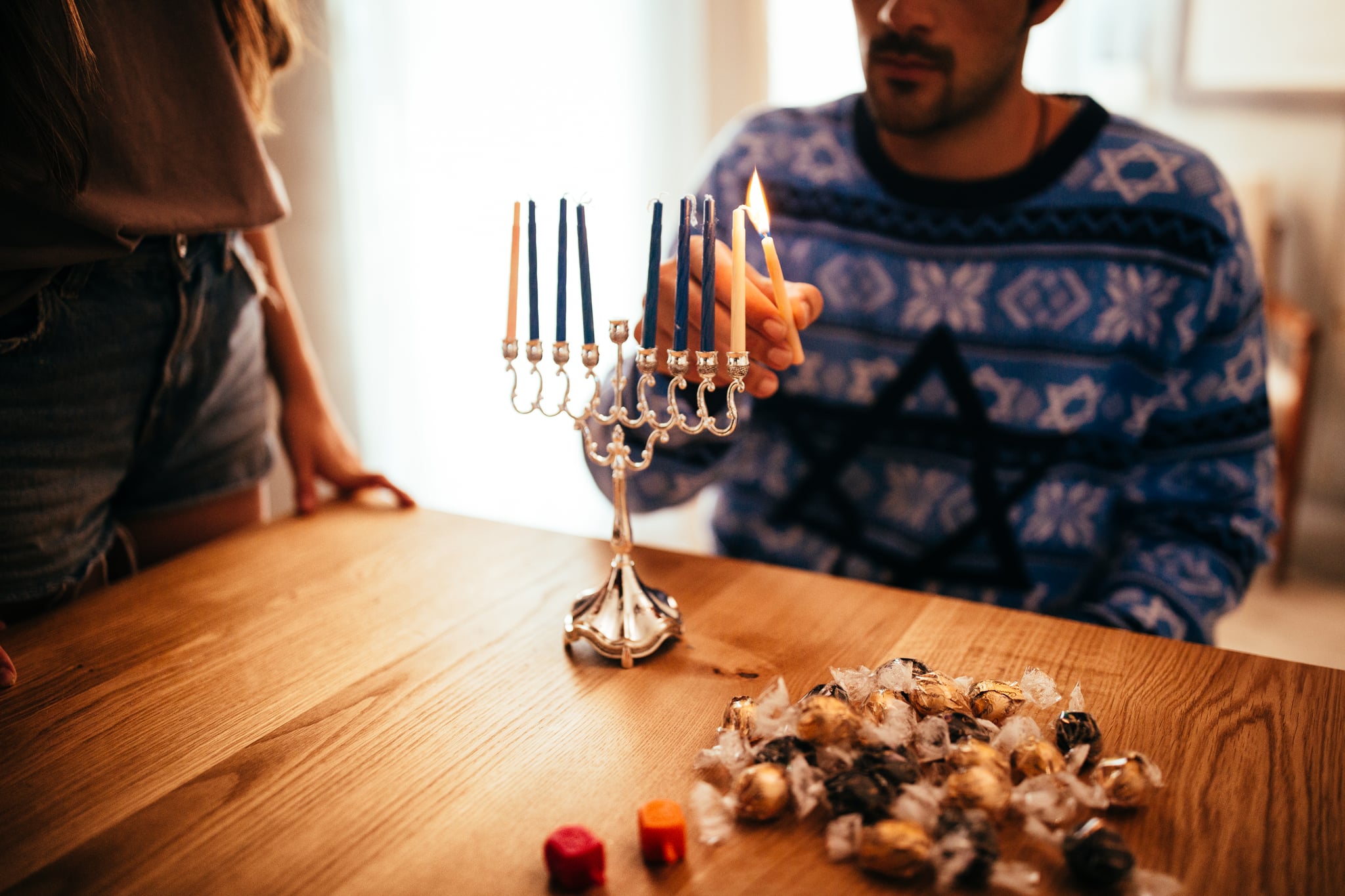How My Family's Hanukkah Traditions Connect Me to My Culture
My Family's Hanukkah Traditions Are a Reminder to Connect With My Culture

It's perhaps not surprising that Hanukkah gets the short end of the stick when it comes to the much-beloved winter holidays. After all, Christmas is a veritable explosion of trimmed trees and Santa and celebrations that last for an entire season, while Hanukkah usually gets relegated to teeny-tiny displays in stores. But growing up in an interfaith household, in which I celebrated both Hanukkah and Christmas, my yearly Hanukkah traditions are just as important to me as the Christmas ones.
For me, even when I was a kid, it's never been about the eight nights of presents. (Although it's become a yearly ritual for my sister and I to receive pajamas and calendars, even as adults.) Instead, Hanukkah has always represented the best of family tradition: Gathering around the dining room table and chowing down on tender brisket while latkes sizzle in the kitchen. Then, we all light the menorah, carefully picking out each colourful candle one by one, and watch them glow in the reflection of the window.
When I went off to college and was unable to be with my family for every night of Hanukkah, I even transformed dreidel into a drinking game — and I mostly delighted in teaching my non-Jewish friends what each Hebrew letter stood for. (As someone who never went to Hebrew school or was particularly religious, passing on the knowledge of the game — albeit with alcohol instead of coins or gelt — made me feel proud.)
There is a certain sense of coziness in the repetition of traditions, in knowing that as the world changes around us, the customs will always be there, unchanged, reminding us of the importance of family and celebration and harkening us back to childhood. It gives me a feeling of belonging, knowing that people all over the world are participating in their own Hanukkah customs, especially when Jewish holidays have been historically forbidden. (See: the reason why Hanukkah was celebrated in the first place.)
There's a children's movie I loved as a kid — Chanukah at Bubbe's — in which one of the Muppet-like characters happily declares that he is proud to be Jewish and that lighting the menorah makes him feel a warm glow inside. When I partake in Hanukkah rituals, I connect with my own Jewish identity and what that looks like for me. As someone who grew up interfaith, my Judaism has never been about getting Bat Mitzvahed or which parent is the one who passed down their heritage to me. Instead, when I sing the Hanukkah blessings or dip a latke into applesauce or even simply unwrap a piece of gelt, I instantly feel tethered to my childhood, my family, my ancestors. It is through the ritual of these traditions that my Jewish identity comes alive, as it has always been a cultural, familial experience for me, rather than a religious one.
As the pandemic of 2020 separates so many loved ones from their families during this holiday season, I recognise the gift I've been given in that my sister and I moved out of our respective apartments in the city and will be celebrating all eight nights of Hanukkah with our parents for the first time in about a decade. This year, instead of scrambling to cram the holiday into the one random night we all would have been able to get together, we'll be able to savor the celebration over the course of the week. There will be no rushed meals dictated by train schedules, no mad dash of unwrapping present after present just to get through all eight at once. Hanukkah, for us, will be able to be relished, every ritual practiced thoroughly.
Still, that's the thing about traditions: No matter where you are, or who you're with, the holiday and all of its trimmings will still exist — regardless of how you can observe it.







